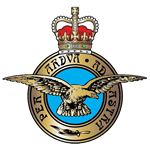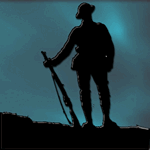Commemorated: | |||
| 1. Memorial: | Clifton-On-Dunsmore (St. Mary) Additional Churchyard | ||
| 2. Book: | The (1921) Masonic Roll of Honour 1914-1918 | Pg.115 | |
| 3. Memorial: | The (1940) Scroll - WW1 Roll of Honour | 2D GQS | |
Awards & Titles: | Officer, The Most Excellent Order of the British Empire | ||
Early Life :
Son of George and Alice Austin-Sparks, of 6, Elmwood Crescent, Kingsbury, Middx;husband of Elizabeth J. Austin-Sparks. Born at Streatham, London.
Family :
Elizabeth Jane Austin-Sparks. Born at Streatham, London.Probate record shows: AUSTIN-SPARKS, Ralph Harold of 47 Hopton Road, Streatham, Surrey. Died 25th July 1918 at Lilbourne, Rugby, Warwickshire. Administration granted at London 1st August to Elizabeth Jane Austin-Sparks - widow. Effects £754 9s 10d
Service Life:
Campaigns:
- The First World War 1914-1918, World-wide.
| Unit / Ship / Est.: Royal Air Force |
| Action : Accident |
Accidents were a minor factor in the casualty list. Our definition is deaths resulting from activities that were not directly associated with 'active service'. We have excluded Naval Accidents which are seperately identified because of their numbers and impact. Many accidents involved the aviators, operating at the the limits of technology.
Detail :
AUSTIN-SPARKS, Ralph, Colonel, Royal Air Force. Ralph Austin-Sparks had a very eclectic career in the armed forces. At the outbreak of war in August 1914 he was in Argentina and promptly returned home to join up. He seems to have had a pre war commission in the Territorials as research shows that he "re-joined" the London Scottish (1/14 London Regiment) in November 1914. He swiftly transferred to the cavalry in the 11th Hussars, 12th Cavalry Brigade in December 1914. Then he seems to have tired of the cavalry and in May 1915 is promoted to Captain in the Royal Artillery. Within only one month he is attached to the Royal Flying Corps and in July 1915 he is wounded whilst flying over Ypres.
We do not yet know the nature of the wounds but perhaps due to the need for convalescence or because he has some front line flying experience, he is posted in October 1915 to No 5 Reserve Aeroplane Squadron, followed by spells in 19 Squadron and 34 Squadron. He is next recorded in July 1918 at the School of Special Flying and also Col.-in-Command R.A.F. (Midland Area). Schools of Special Flying were set up at Turnberry, Marske, Sedgeforth, Feiston, East Fortune Gosport and Ayr, where finished pilots could simulate combat flying under the supervision of veteran instructors. Applicants for aircrew generally entered the RFC as a cadet via the depot pool for basic training. The cadet would then generally pass on to the School of Military Aeronautics at either Reading or Oxford. Following this period of theoretical learning the cadet was posted to a Training Squadron, either in the UK or overseas. From May 1916 pilots under instruction were further trained for fighting in the air at the Schools of Special Flying which reversed the previous accepted view that "dangerous" flying should be avoided to a positive expectation that pilots would maximize the potential of their aircraft. This no doubt reflected the massive improvement in technology and performance as aircraft evolved during the war. On the 25th July 1918 Colonel Ralph Harold Austin-Sparks was killed when a Bristol F2B 8917, of the School of Special Flying spun into the ground at Lilbourne.
He left a wife, Mrs S J Austin-Sparks at Linchams Goals, Caterham, Surrey. He was a member of the Thames Rowing Club, Belsize Boxing Club and the London Scottish Rugby Football Club. He was conferred the honour of Officer, The Most Excellent Order of the British Empire in the King?s Birthday Honours in June 1918. There is also a record of a John Austin-Sparks, DFC, Flight Commander of B Flight, 103 Squadron RAF in August 1918. It is possible that he was related to Ralph but we need more information on the family to verify this.
INQUEST - FATAL AEROPLANE ACCIDENT. "An inquest was held on Saturday concerning the death of Col Ralph Harold Austin Sparks, R.A.F, Somerset House Clarendon Place, Leamington, which (as we reported last week) was causes by an aeroplane accident on Thursday.
The father of deceased, George Austin Sparks, 47 Hopton Road, Streatham, London, stated that his son was 37 years of age, and had been a pilot since 1915.
Capt Norman Brearley, R.A.F, deposed that on Thursday morning the deceased officer, was flying a machine, and until he reached a height of 300 feet the engine worked satisfactorily. At this altitude Col Austin Sparks turned the machine to the left. The pilot apparently had engine trouble, for he made another turn to the left, which brought him into the wind. This turn started the machine spinning, and it nose dived, crashed to the ground, and burst into flames, which were caused by the petrol tank bursting and flooding the hot engine. Witness gave technical explanations as to how the spinning might have been started ; and, in reply to a juryman, said the deceased had only been in the air a minute before the accident happened, but the engine would be hot enough to ignite the petrol before the machine left the ground.
Air Mechanic Arthur William Spinks deposed that he examined the engine on the Wednesday evening and Thursday morning before the accident, and it was then in perfect order. When Col Austin Sparks had reached an altitude of 50 or 70 feet the engine began to splutter, but witness could not account for this.
Surgeon-Major Chester Collins deposed that he visited the spot a few minutes after the accident. The deceased officer was in a semi-sitting position in the burning machine. The heat was so great that it was impossible for the helpers to get near enough to render assistance, but witness satisfied himself that the officer was dead. The flames were about 12 feet high, and the lower portion of the deceased’s body was pinned under the engine, so that, although several of the men made the attempt and received serious burns in so doing, it was impossible to extricate the body until the flames had been subdued by fire extinguishers. Witness afterwards found that the injuries were such that death must have been instantaneous.
A verdict of, "Accidental death" was returned, and the Coroner and Jury expressed sympathy with the father and wife of the deceased officer."
See also: Rugby Remembers.
Masonic :
| Type | Lodge Name and No. | Province/District : |
|---|---|---|
| Mother : | Moira No. 92 E.C. | London |
Initiated | Passed | Raised |
7th May 1918 | 11th June 1918 | 9th July 1918 |
Source :
The project globally acknowledges the following as sources of information for research across the whole database:
- The Commonwealth War Graves Commission
- The (UK) National Archives
- Ancestry.co.uk - Genealogy, Family Trees & Family History online
- ugle.org.uk - The records of the United Grand Lodge of England including the Library and Museum of Freemasonry
Additional Source:
- Founder Researchers : Paul Masters & Mike McCarthy
- Researcher : Bruce Littley

